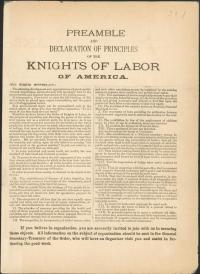
|
| All images in this post are works by British artist Andy Goldsworthy. |
I went to a free lecture yesterday morning at the University of Chicago on "Buddhist Practices of the Self." It was given by Steven Collins, a professor in the South Asian Languages and Civilizations program there, who lists his current research interests as "the translation of Pali texts, civilization and gender, madness and possession." Now, how cool is that? This is the sort of academia that I love, truly.
And the experience and substance of his lecture were both right on target for me. After all, I had toiled away for years, getting a Ph.D. at the University of Chicago myself . . . so it was an odd experience to be back, much later, now a certified yoga teacher, writing a book about 21st century yoga - and still in the process of integrating my academic past and yogic present.
Practices of the self, indeed.

|
Philosophy as Self-Creation
The lecture began by fleshing out the concept of "practices of the self" via several historical examples. (And yes, all you knowledgeable readers out there, the fact that Buddhism doesn't believe in a "self" was discussed. But it would take too long to get into that here.) So, for example, the ancient Greeks believed that studying philosophy transformed the self. And that, really, was the point: meaningful knowledge changes who you are.
Learning in this sense is a very deliberate process of acculturation - a shared tradition designed to develop particular ways of being.
It saddens me to think about how much this contrasts with our taken-for-granted understandings of education and learning. The mainstream model is to accumulate facts and techniques in order to demonstrate our proficiency on tests. It's a consumer-based, factory-model mindset. Take it in, process it, churn it out.
The point of learning isn't to transform your inner state of being; it's to make your social self more marketable and competitive.
I also thought about how dominant cultural patterns in our own society encourage particular ways of being . . . and that if we systematically promote junk food, cheap entertainment, and mindless distraction, it has a profound effect on who we are . . .
And it's a pretty disturbing thought, given what's been going on here lately.
From the Monastery to the Middle Class
Collins also talked about how until recently, practices of the self were found only in exclusive settings, such as monastic communities. In pre-modern Buddhism, meditation was for monks only (and, to a lesser extent, nuns. Collins briefly mentioned how nuns once existed in the Theravada tradition, but disappeared quite a long time ago. It's not clear why.) Traditionally, only a very small minority of people were assumed to be suited for such serious, engaged practices - whether philosophy, meditation, studying scripture, or whatever.
While the masses had their devotional religious practices, these were quite different. And most of the population was necessarily absorbed in the work of everyday survival in any event.
Beginning in the mid-19th century, however, the rise of an educated middle class (particularly in the West, but also worldwide) expanded some of these practices out to a small, but significant minority of interested lay people. And so today, people like yours truly (and probably most of the people who bother to read this blog) practice meditation (and other parallel) techniques that were formerly the provenance of monks only.
Integrating Philosophy and Yoga
Now, I basically knew all this already. But what was interesting to me was the more personally recursive nature of this whole lecture experience. I had studied at the same institution in which I was now listening to this lecture. But at the time, I had no interest in yoga, meditation, Buddhism, or anything like that.
I had, however, been very interested in knowledge. And I certainly believed that serious learning was a practice of the self in the sense discussed in this lecture. But it was only later, after doing some the practices that I was now returning to hear about in this lecture, that I discovered that there are also other, very powerful ways of learning that transform the self too - e.g., yoga.
So I was listening, and reflecting on how much I like this sort of incredibly elegant, erudite, academic learning (when it's well done, as this was, it's an absolute art). But I also realized that even when I had been the most single-mindedly into it, I had also found something lacking there too.
And now I know why. The experience of doing yoga opened up parts of my mind for learning that simply weren't being systematically cultivated before. Or at least that's how I think of it.
ISO More Post-Modern Yoga Philosophy
I wish, however, that the study of yoga today were far enough along that I could go to hear a parallel lecture on "Yogic Practices of the Self." Because I feel that the core idea presented - that these systematic practices of transformation have a long and important history, but that who's engaged with them has expanded, and that as that's happened, the practices themselves have changed - applies to yoga as well as Buddhism.
But yoga, being body-based, tends to be much less intellectually rigorous (today - not historically), mirroring our culture's larger mind/body split.
By the same token, however, I feel that bringing the body back into philosophy, and consciously recognizing how important both are in human development (particularly today, when we are so cut off from nature, and so alienated from our own physicality) is critical.
For me, integrating the mind and body, the academic and the yogic, my past and present feels very synergistic, compelling, creative, and enlivening. And I can't help but think that it would be good to have something along the same lines happening on a broader societal level as well.
And to some extent, of course, it is. I've read some great writing on yoga in the past year. But I also feel like we haven't even explored the full tip of the iceberg. There's still so much interesting and significant work that (in my view) calls out to be done.
I guess my no-longer-secret ambition is to give a lecture on "Yogic Practices of the Self" someday myself . . . I have tons of ideas, although it would take awhile to get them organized. And then, the big question, of course, is: who would come? So for now, I'll just stick to blogging.

|
| http://www.ucblueash.edu/artcomm/web/w2005_2006/maria_Goldsworthy/TEST/index.html |







